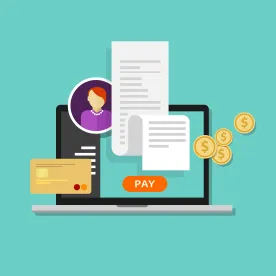On March 5th the Consumer Financial Protection Bureau ("CFPB") announced that it had finalized its rule revisions to Regulation Z and the Official Staff Commentary regarding “Credit Card Penalty Fees.” See a redline of the resulting changes to Regulation Z, here. Alleging the Federal Reserve’s implementation of the CARD Act in 2010 led to a loophole “that allowed credit card companies to sidestep accountability if they charged” late fees consistent with the dollar amounts chosen by the Federal Reserve (i.e., $25 for the first late payment, and $35 for subsequent late payments, adjusted for inflation, which is $32 and $43 today), the CFPB declared that the maximum late fee that can be charged for a late credit card payment is $8, regardless of inflation and regardless of the number of times a payment has been made late. (Card issuers that have less than one million open accounts can still charge the inflation-adjusted late fees set by the Federal Reserve in 2010.)
Card issuers with more than one million open accounts may charge more than $8 for late fees, but only if they “show their math.” This means that if they can prove the higher fee is necessary to cover their actual collection costs, then they can charge a higher late fee. Notably, however, the Official Staff Commentary has been updated to specify that “collection costs that are incurred after an account is charged off in accordance with loan-loss provisions” may not be included in the “actual collection costs” of a card issuer for purposes of establishing the late fees. Despite widespread comments from industry and trade groups regarding how substantial post-charge-off costs are, the CFPB replied that “the costs in collecting amounts owed to a card issuer that are incurred post-charge-off are substantially related to mitigating a loss” and are not related “to the cost of a violation of the account terms” and therefore, the post-charge-off costs are not collection costs. And, further, the CFPB pointed out that if such post-charge-off costs were allowed to be included in the late fee calculation, “the majority of consumers who pay late fees—whose accounts were merely delinquent and not written off—would be compensating issuers for losses that have nothing to do with their own late payment violations, but rather result from the small minority of delinquent accounts that might be written off.”
That logic – it is bad to make a group of card customers worse-off as a result of behavior that is not their own – is not consistently applied by the CFPB, of course. For the majority of credit card customers who never pay late, the impact that reducing late fees to $8 is likely to have will result in higher interest rates and lower credit lines. Importantly, in its zeal to provide “an average savings of $220 per year” for the credit card customers who habitually pay late fees, the CFPB may not only be disrupting the credit card industry, but may also be severely impacting the access to credit by such credit card customers.




 />i
/>i

